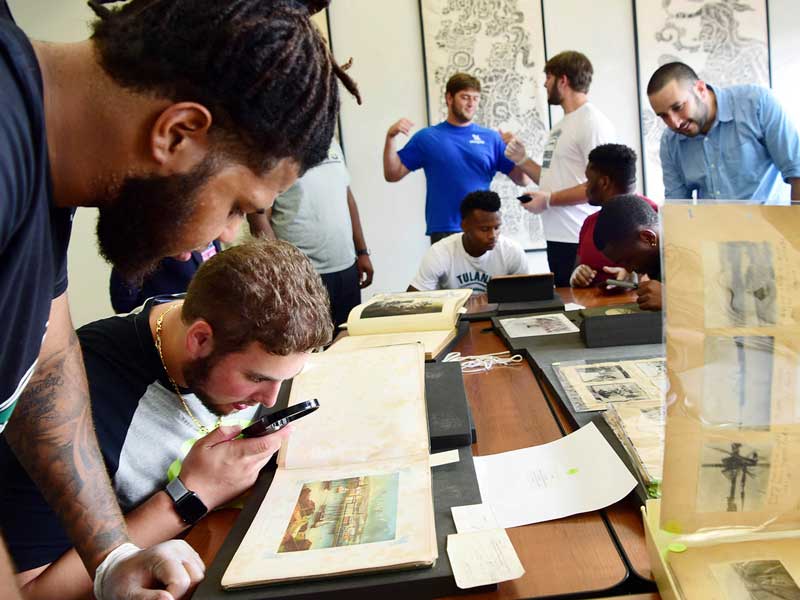
History is more than learning about events and dates. At Tulane we emphasize independent thought, critical analysis, and a hands-on approach to learning. Taken together, these opportunities develop self-reliance, your distinct voice, and expertise.
Methods Classes
These seminars train students how to understand the contingency of historical interpretation, frame historical questions, use primary sources, and develop historical analysis and arguments. Some majors may teach you what they do; we teach you how to do it!
Internships and Service Learning
Juniors and seniors with a minimum of a 3.0 GPA can take advantage of a Public History Internship as part of the Center for Public Service (CPS) Internship Program. It’s a great opportunity to integrate your academic knowledge with a professional environment in the local community, building lasting connections with New Orleans in a “hands on” environment.
Archival Research
Take your research projects to the next level with archival research. Dig into old documents, discover lost treasures, find your passion. Tulane University is home to an amazing range of archives and special collections on every imaginable subject, including the Louisiana Research Collection, the Amistad Research Center, the Vorhoff Library Special Colleges and Newcomb Archives, the Latin American Library at Tulane, the Hogan Jazz Archive, and the Southeastern Architectural Archive. And in the Greater New Orleans areas, there’s even more! Tulane University provides lots of funding support for independent research.
Thesis Writing
The senior thesis is a major undertaking and an excellent opportunity for graduating History majors. Honors students and History Seniors with a cumulative GPA of 3.4 and a GPA of 3.5 in the History major are eligible to write a senior thesis and to graduate cum laude. The thesis gives you an opportunity to "do" history—to engage in debates with other scholars, to offer your own interpretations of primary sources, to transform scattered and undigested information into a meaningful narrative and a compelling analysis. The thesis allows you to bring all of your accumulated knowledge and skills together, and to show off your capability, research skills, writing, organizational skills, originality, and creativity. These skills will be valued in every career or major endeavor you take on.
Publishing
Your writing assignments can have life beyond the classroom. A public portfolio of your achievements can carry you beyond graduation. If you’ve written a research paper based on primary sources, you should consider submitting to a journal like the Columbia Journal of History (Columbia University), Tufts Historical Review (Tufts University), History Matters (Appalachian State University), Yale Historical Review (Yale University), or Clio’s Scroll (UC Berkeley).

